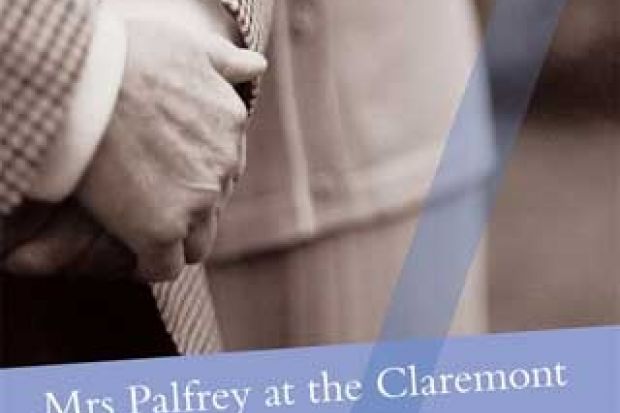Lynsey Hopkins, admissions manager (undergraduate), University of Sheffield, is reading Elizabeth Taylor’s Mrs Palfrey at the Claremont (Virago, 2006). “I’m going through a phase of reading mid-20th century authors, and discovering Taylor is a joy. In this short novel she creates moods, characters and atmospheres with incredible economy of expression - I’m in awe of how she achieves so much with so little. It’s a sad and spiky work that will stay with me for a long time.”

Karen McAulay, music and academic services librarian, Royal Conservatoire of Scotland, is reading Iain Banks’ The Crow Road (Kindle, 2008). “Since I live not far from the Crow Road in Glasgow, reading Banks’ book has been on my to-do list for a while. Although initially I found it a little disconcerting to find chapters recounting the stories of different generations at different times, the book was hard to put down, with great characters and plenty of humour. Recommended.”

Sheila Rowbotham, honorary fellow, University of Manchester, is reading Paul Kelemen’s The British Left and Zionism: History of a Divorce (Manchester University Press, 2012). “In the 1960s I often heard kibbutzim praised as socialist, but met a trade unionist who had lost his leg doing national service in Palestine when a Zionist bomb in a pram exploded. Kelemen’s thoughtful book provides the historical context for many such contradictions. Based on original sources and distinguishing carefully between anti-Semitism and political opposition to Zionism, he explains how and why the pre-1960s Left tended to support Zionism. I found it profoundly illuminating.”

Nigel Rodenhurst, disabled students’ allowance administrator at the University of Wales Trinity Saint David, is reading Frédéric Beigbeder’s £9.99: A Novel (Picador, 2002). “A thinly disguised attack on a contemporary conglomerate, £9.99 fully explains Beigbeder’s reputation as an enfant terrible of French fiction. Whether or not a sustained rant qualifies as literature is something of a side issue. Scathing, disturbing and cynical from the first page, this novel is not for those who are easily offended.”

June Purvis, professor of women’s and gender history, University of Portsmouth, is reading Maureen Howes’ Emily Wilding Davison: A Suffragette’s Family Album (The History Press, 2013). “On 8 June 1913 the suffragette Emily Wilding Davison died, four days after running on to the race course at the Derby and trying to grab the reins of the King’s horse. This book, based mainly on oral testimonies of the Davison family, challenges the view that she was a suicidal fanatic. Some fascinating snippets here, but not the last word on this courageous fighter for democracy.”
Register to continue
Why register?
- Registration is free and only takes a moment
- Once registered, you can read 3 articles a month
- Sign up for our newsletter
Subscribe
Or subscribe for unlimited access to:
- Unlimited access to news, views, insights & reviews
- Digital editions
- Digital access to THE’s university and college rankings analysis
Already registered or a current subscriber? Login
